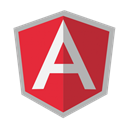Uncovering the Best Ben.JS Alternatives for Your Web Applications
Ben.JS is a plain, small, and easy-to-learn JavaScript framework for single-page applications (SPAs), known for simplifying the creation of powerful JavaScript web applications with its lightweight MVC framework. Based on jQuery, it allows for easy integration with existing code and various extensions. However, as with any framework, developers often seek alternatives that might offer different features, performance, or community support. If you're looking to explore other options beyond Ben.JS for your next project, you've come to the right place.
Top Ben.JS Alternatives
While Ben.JS offers a compelling solution for many, the JavaScript ecosystem is vast and constantly evolving. Here are some of the leading alternatives that provide robust features and different approaches to building modern web applications, whether you prioritize a specific architecture, real-time capabilities, or a thriving community.

AngularJS
AngularJS extends HTML to facilitate declaring dynamic views in web applications, making it a powerful Ben.JS alternative for complex SPAs. It's a free, open-source framework available on Mac, Windows, Linux, and Web platforms, offering features like built-in routing and extensive developer tools for robust web development.

React
React is a JavaScript library by Facebook for building user interfaces. It's an excellent Ben.JS alternative for developers who prefer a declarative approach to UI development. Free and open-source, available on Mac, Windows, Linux, and Web, React boasts features like a virtual DOM, modular system, and strong support for web development.

Meteor
Meteor is a full-stack open-source platform for building top-quality web apps rapidly. It's a strong Ben.JS alternative for those seeking a comprehensive solution with integrated backend and persistent storage capabilities, available for free on Mac, Windows, and Linux.

ember.js
Ember.js is a productive framework that allows developers to write less code with integrated Handlebars templates that update automatically. As a free, open-source JavaScript framework for the Web, Ember.js is a robust Ben.JS alternative for building ambitious web applications with a focus on convention over configuration.

FeathersJS
FeathersJS is a real-time, micro-service web framework for NodeJS, offering control over data via RESTful resources and sockets. This free, open-source, and self-hosted Ben.JS alternative is ideal for developers looking for real-time bidirectional API and socket communication features.

RiotJS
RiotJS is a simple and elegant component-based UI library, known for its custom tags, enjoyable syntax, and tiny size. It's a fantastic free and open-source Ben.JS alternative for web projects where minimalism and performance are key, offering a lightweight approach to UI development.

Backbone.js
Backbone.js provides structure to JavaScript-heavy applications with models, collections, and views, making it a fitting Ben.JS alternative for those seeking a more organized approach without the overhead of larger frameworks. It's a free and open-source solution for web development.

Microsoft Web Framework
The Microsoft Web Framework (MWF) is a system designed to help authors tell the story of Microsoft products and services with confidence in its modular pieces. As a free, open-source, and self-hosted option, it serves as a viable Ben.JS alternative for those entrenched in the Microsoft ecosystem or looking for a component-driven architecture.

Alpine.js
Alpine.js offers the reactive and declarative nature of larger frameworks like Vue or React but at a much lower cost, allowing developers to sprinkle behavior directly into their DOM. This free, open-source, and self-hosted Ben.JS alternative is perfect for projects requiring light interactivity without a full-blown SPA framework.
The world of JavaScript frameworks is diverse, and the 'best' Ben.JS alternative truly depends on your specific project requirements, team expertise, and desired level of complexity. We encourage you to explore these options further, experiment with their features, and ultimately choose the framework that best aligns with your development goals and helps you build exceptional web applications.